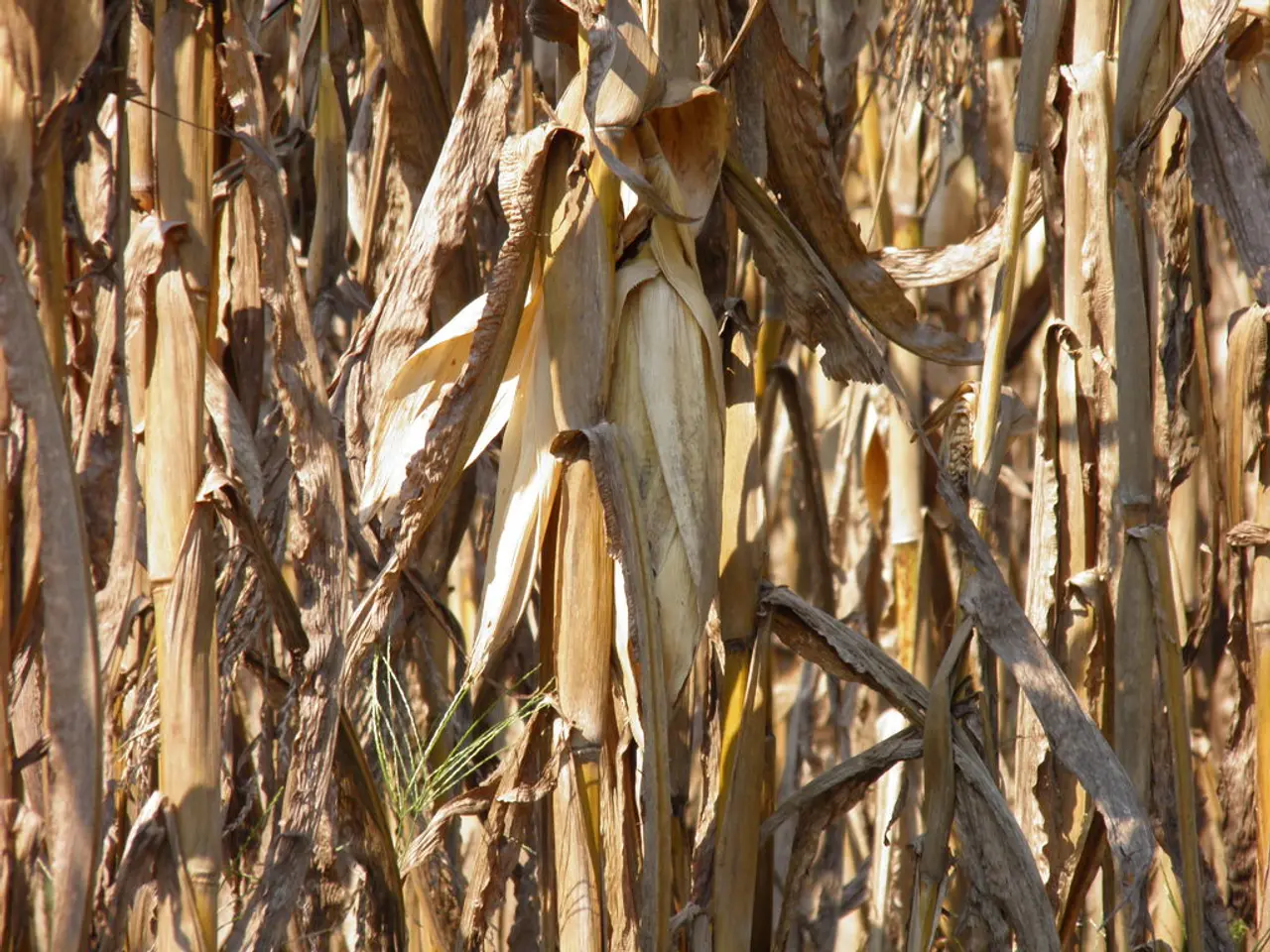Agriculture numbers in Belarus remain compromised due to prolonged late harvests
Belarus' Agricultural Production Faces Delays but Boasts Higher Yields in 2025
Belarus' agricultural sector is experiencing a mixed picture this year, with a significant delay in the harvesting process but improved yields compared to the previous year.
Grain Harvest Volumes
By late August 2025, Belarus has harvested over 8 million tonnes of grain, including rapeseed. About 87% of the area under cereals and legumes, excluding maize, which amounts to 2.118 million hectares, has been harvested. This volume is a substantial recovery from earlier harvest delays.
Harvest Delays and Reduced Output
The agricultural output has declined by 12.7% year-on-year at constant prices, primarily due to a later start in harvesting and fodder conservation activities this year. As of August 1, only 22.3% of the area under grain and legumes had been harvested, down from 59.3% a year ago.
Improved Yields
Despite the slower harvesting pace, the average grain yield has improved, increasing from 34.2 centners per hectare in 2024 to around 43 centners per hectare in 2025. In some locations, such as the Ustye farm, average yields exceed 50 centners per hectare, with winter barley reaching about 70 centners per hectare, which represents a record.
Comparison to Previous Years
While there is a notable output reduction in value terms during January-July 2025 due to timing issues, the overall yield improvements suggest a better-quality crop. The production volume of over 8 million tonnes by late August indicates progress toward compensating for the late harvest start. Belarusian agricultural output rose by 3.6% in 2022, 1% in 2023, and 3.4% in 2024, showing a positive trend over recent years.
Livestock Production
By August 1, the number of cows in agricultural organizations is 1.4 million, and the number of pigs is 2 million heads. By July, households in Belarus had produced 1,054.5 thousand tons of livestock and poultry (in live weight), 5,393.8 thousand tons of milk, and 2,296.9 million eggs. As of August 1, 4.2 million tons of feed units have been prepared, including 3.2 million tons of grass feed.
In summary, Belarus' grain production in 2025 is challenging in timing but promising in quantity and crop quality compared to last year. The delay in the harvesting process has caused a year-on-year reduction in agricultural output value in the early months, but the improved average yields and catching up in total harvested volumes by August indicate a promising season. The livestock production indicators also show steady growth, with households contributing significantly to the country's dairy and meat production.
Financial Implications of Delays
The delay in grain harvesting and fodder conservation activities has led to a reduced agricultural output in the first half of 2025, impacting the agricultural sector's financial performance.
Future Finance Projections
Whether the improved yields and catch-up in total harvested volumes will offset these early season losses and contribute to a stronger agricultural financial performance in 2025 remains to be seen. However, the positive trend in agricultural output over recent years suggests a promising financial future for Belarus' agricultural sector.








